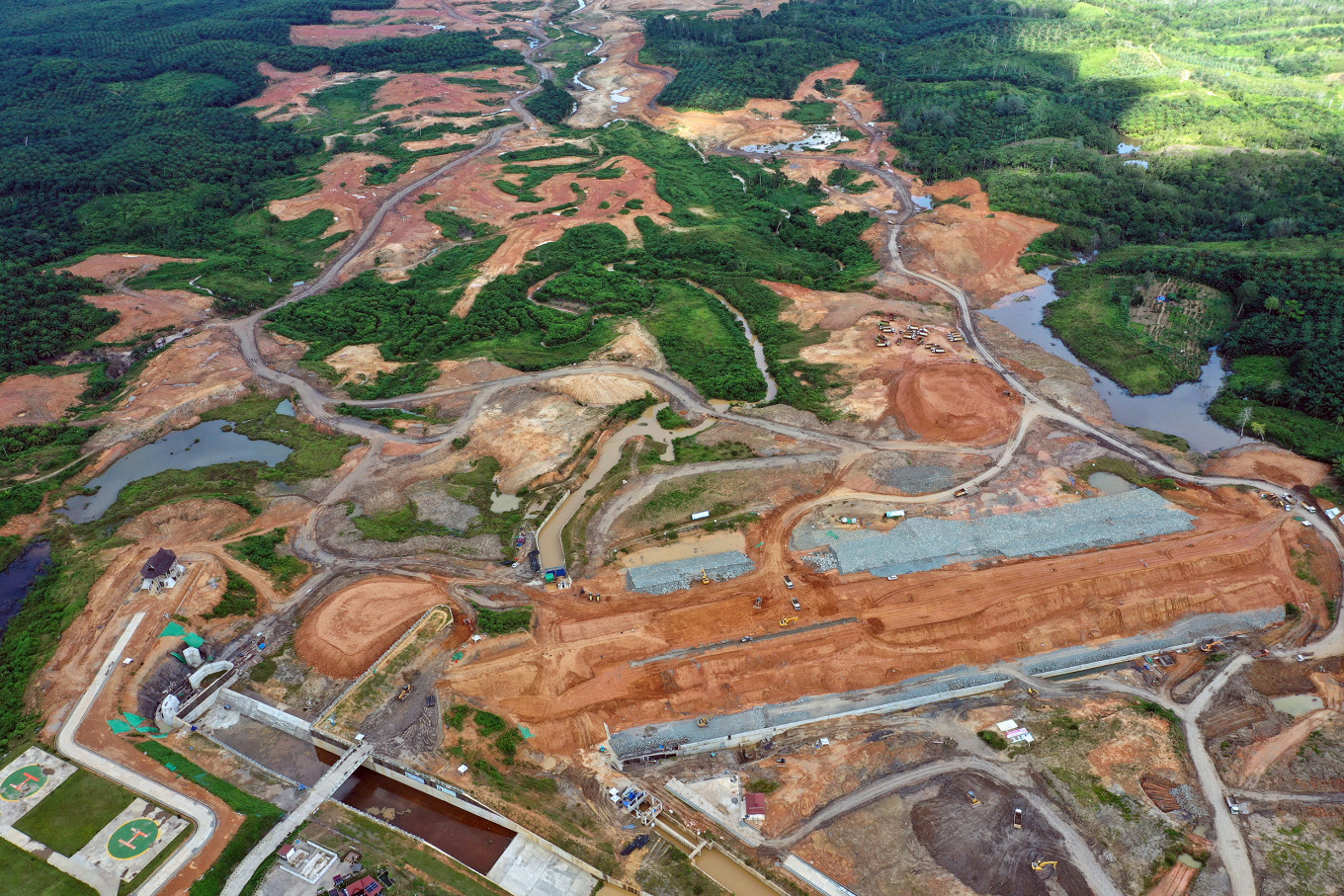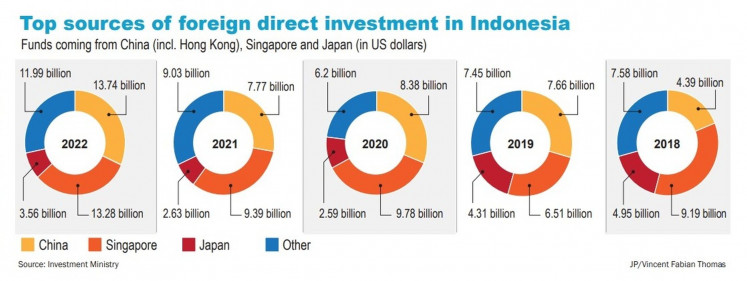Popular Reads
Top Results
Can't find what you're looking for?
View all search resultsPopular Reads
Top Results
Can't find what you're looking for?
View all search resultsLuhut’s China trip brings railway, industrial deals
Minister still seeking lower interest rate on railway loan.
Change text size
Gift Premium Articles
to Anyone
C
oordinating Maritime Affairs and Investment Minister Luhut Pandjaitan's three-day visit to Beijing until April 6 concluded with agreements with China, including the Jakarta-Bandung high-speed railway and the development of a green industrial park in North Kalimantan.
Luhut said on Monday both countries had agreed on a US$560 million loan from China Development Bank (CDB) that will bear some part of the $1.2 billion cost-overrun plaguing the high-speed railway project, which figure also concluded in the visit after months unresolved discrepancy between the two.
The rest of the cost will be financed partly by equity in PT Kereta Cepat Indonesia China (KCIC), the consortium responsible for the project.
Despite the loan agreement, Luhut sought to negotiate further, aiming to lower the interest rate to around 2 percent, almost half the prevailing figure that China had agreed on.
“The government will continue to negotiate the loan tenure and interest rate. CDB has agreed to lower the interest rate from 4 percent to 3.4 percent, but we want lower interest rates,” he told reporters in Jakarta, saying that the negotiation is targeted to finalize “in the coming weeks”.
Read also: Analysis: RI-China reach agreement on Jakarta-Bandung HSR cost-overrun
The loan would be given to railway company PT Kereta Api Indonesia, which heads the PT KCIC consortium. Septian Hario Seto, undersecretary at the Coordinating Maritime Affairs and Investment Ministry said discussions on the loan guarantee are still underway.
“The Chinese government wants the loan guarantee to be made directly through the state budget but [Indonesia] wants to guarantee the loan through PT Penjaminan Infrastruktur Indonesia [PII],” he said on Monday. “We will try to negotiate that.”
Previously, China assumed that the Global System Mobile Railways (GSM-R) frequencies used for signaling trains were free like it is in their country, which led Beijing to estimate the high-speed rail project’s cost overrun at $982 million.
Meanwhile, Indonesia’s estimate is higher as the GSM-R required a frequency-sharing program with Telkomsel, which has an investment cost. Thus, the Indonesia Development Finance Comptroller (BPKP) concluded the project cost overrun exceeded $1.49 billion.
Agreement between the two countries on the cost-overrun figure was important to allow the Indonesian government to proceed with disbursing another Rp 3.2 trillion of state-capital injection to KCIC through state-owned KAI.
Read also: Private consortium to build U$6.5b industrial zone in N. Kalimantan
Top sources of foreign direct investment in Indonesia. (Investment Ministry/JP/Vincent Fabian Thomas)North Kalimantan industrial park and new capital city project
Luhut’s visit to China also yielded an investment for the construction of several projects in the Kalimantan Industrial Park Indonesia (KIPI) on the northern side of the island, which the country hoped would become the world’s largest green industrial park.
These projects include construction of an aluminum smelter, a petrochemical industrial complex as well as a hydropower plant located in the industrial park.
“Investment for these projects is worth approximately $132 billion,” he said without specifying China’s stake in the manufacturing hub.
As for the new capital city project located in East Kalimantan, the government hoped China would provide support on the design, management and construction of several clusters supporting Nusantara city (IKN).
“Regarding the new capital city project itself, Indonesia hopes for China's support, especially the expert team from Shenzhen,” Luhut said.
Luhut did not specify if his visit also brought along investment commitments for the new capital city project, but he said the IKN team had received “plenty of interest” from the Chinese companies considering participation in the ambitious project, which if realized would be through the country’s sovereign wealth fund, the INA.
“We hope that the National Development and Reform Commission [NDRC] can recommend good state-owned and private companies to work at IKN,” he said.
On top of that, NDRC is expected to provide help to Indonesia’s food estate project, designed to increase production of the country’s several food commodities in Central Kalimantan, Southeast Sulawesi and other regions.
Director of the Office of the Central Commission for Foreign Affairs Wang Yi said in a statement on April 4, China was ready to work with all-out efforts to ensure that the Jakarta-Bandung High-speed Railway will be built and put into operation on schedule.
Wang Yi also added that two sides should strengthen cooperation in such fields as development financing, green economy, food security, deepen cooperation on maritime affairs, and increase and improve bilateral economic, trade and investment cooperation.
This includes advanced priorities of the Belt and Road cooperation.











